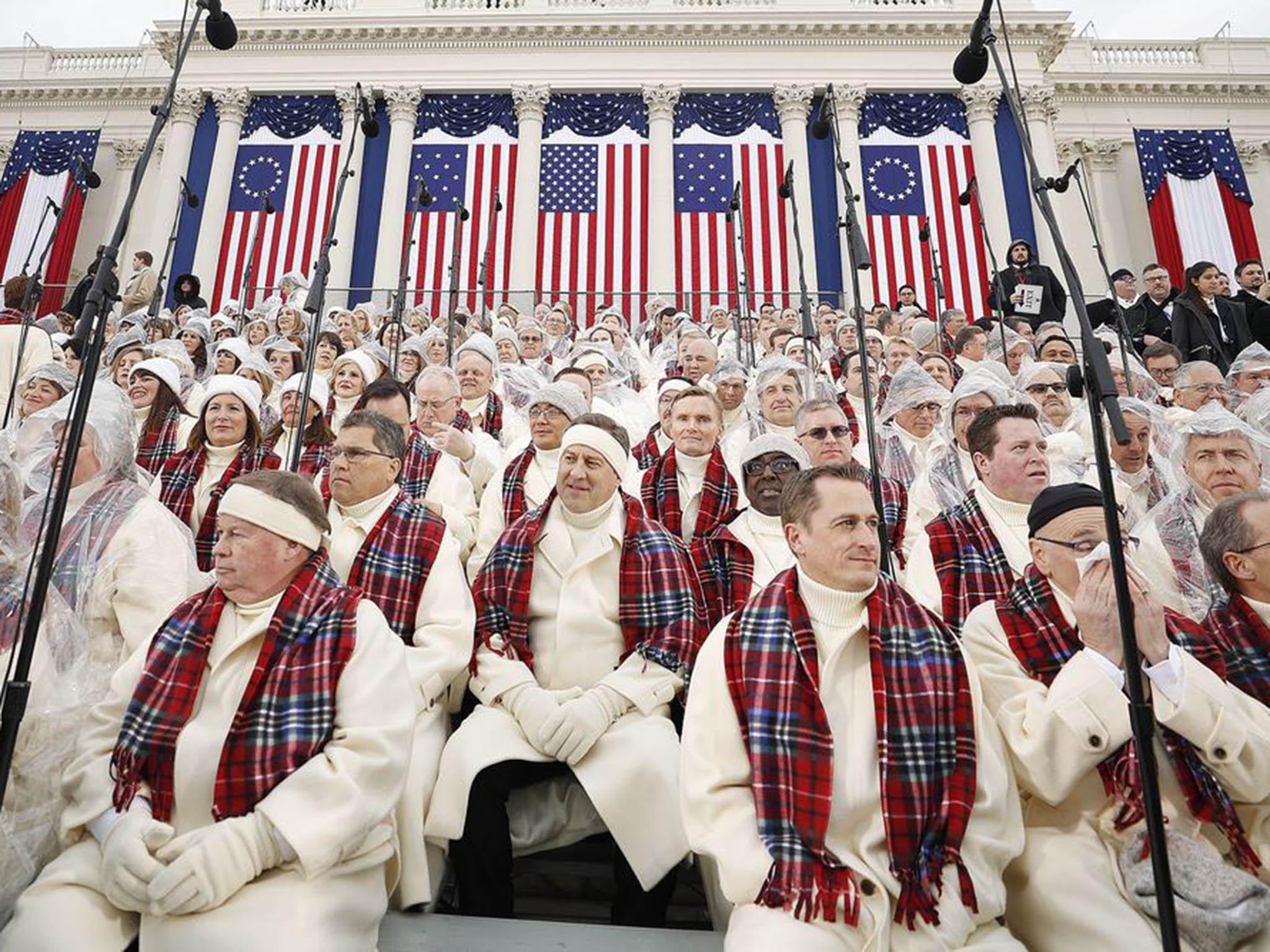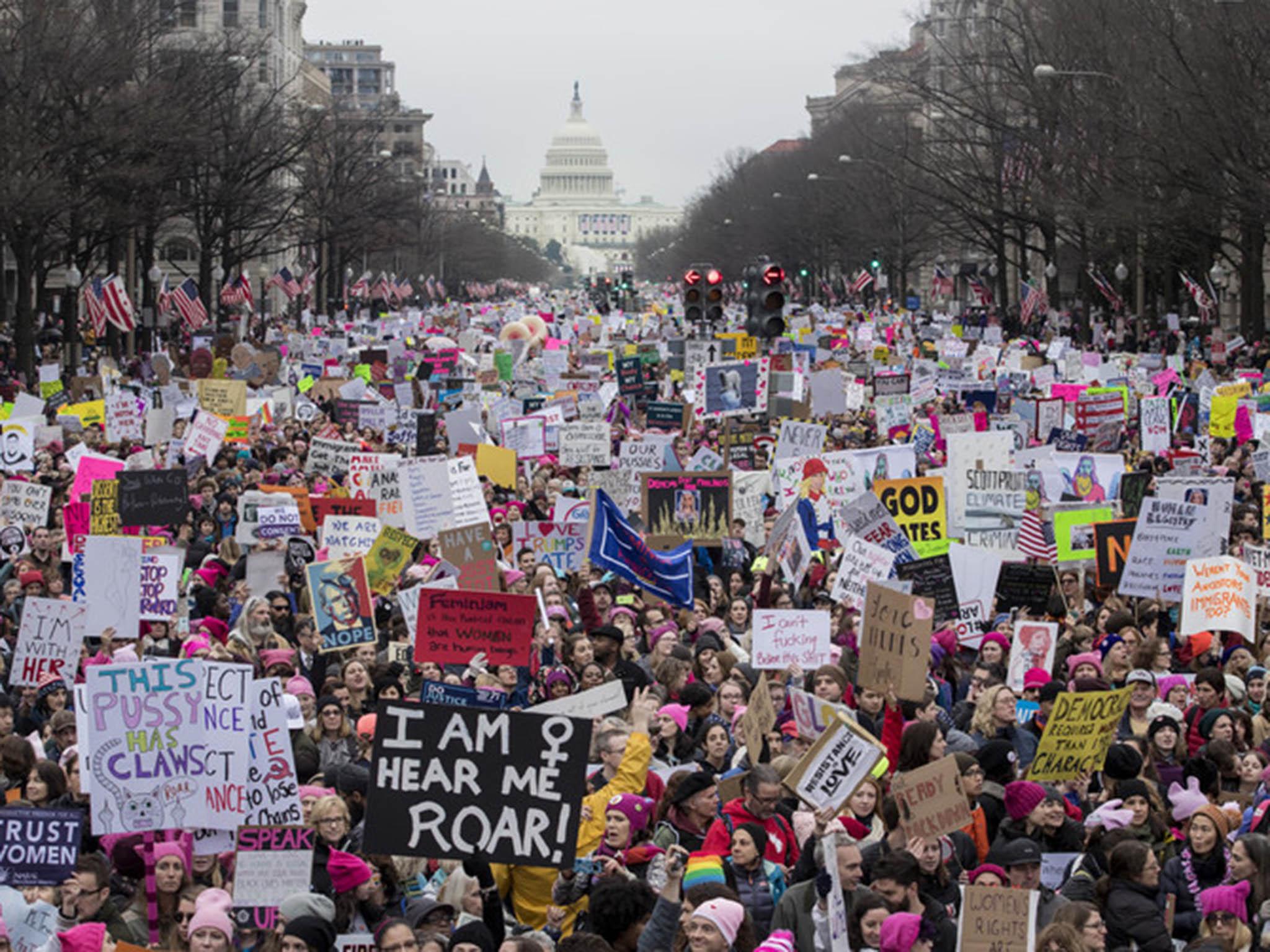Boycotts by celebrities and musicians hit Trump where it hurts
Just as Ewan McGregor refused to appear on Good Morning Britain because of Piers Morgan’s comments on the women’s march, many singers and artists refused to play at Trump’s inauguration

Your support helps us to tell the story
From reproductive rights to climate change to Big Tech, The Independent is on the ground when the story is developing. Whether it's investigating the financials of Elon Musk's pro-Trump PAC or producing our latest documentary, 'The A Word', which shines a light on the American women fighting for reproductive rights, we know how important it is to parse out the facts from the messaging.
At such a critical moment in US history, we need reporters on the ground. Your donation allows us to keep sending journalists to speak to both sides of the story.
The Independent is trusted by Americans across the entire political spectrum. And unlike many other quality news outlets, we choose not to lock Americans out of our reporting and analysis with paywalls. We believe quality journalism should be available to everyone, paid for by those who can afford it.
Your support makes all the difference.It seems apt that the inauguration of the first reality TV show President was overshadowed by discussions of audience size. It clearly rankled Trump that by any metric the Women’s March the following day achieved far greater numbers in Washington DC, even before you start counting all the other associated demonstrations across the US and internationally.
Another bone of contention was the light attendance at his own events compared to those for Barack Obama on ascending to the presidency. His first weekend, and that of incoming White House Press Secretary Sean Spicer, was spent peddling disprovable falsehoods about the size of the crowds.
It’s difficult to disentangle the aesthetics from the politics of inaugurations, especially given the strong undertow of show business in American presidential politics. But there is a distinctiveness to the recent proceedings that separates them from other modern inaugurations.
Just as Trump’s actual inauguration was sparsely attended, the pre-inauguration concert was also a somewhat desultory affair in terms of the line-up. Headliners like country artist Toby Keith, YouTube act The Piano Guys and America’s Got Talent runner-up Jackie Evancho were no match for the star power on display when the likes of Beyonce and Aretha Franklin performed for Obama.
This is of a piece with Trump’s whole run at the White House, his campaign being marked by musicians distancing themselves from his use of their music. There are limits to what artists can do to prevent their recordings from being used – and Trump deployed the Rolling Stones’ music at inaugural events despite their objections. But short of outright duress, there’s little that can be done to bring unwilling musicians to the stage and there has been a broad consensus that Trump’s platform is not one they wish to share. From stadium fillers like Elton John to tribute acts like the B Street Band, there was an unprecedented and vocal turning away from this series of inauguration events.
Celebrity boycott
Neither is this solely a party political issue. Instead, it appears to match Trump’s own personal, and historically low, approval ratings on entering office. Traditionally, the inauguration events have been a bi-partisan celebration of the office of the President, rather than of the incoming President himself, with a long history of artists – like Ray Charles and Frank Sinatra – playing across party lines or, like Jessye Norman, for both Republicans and Democrats.
But given the Trump team’s own apparent disregard for the traditional unifying role of the transition and inaugural events, it seems appropriate that a bi-partisan artistic celebration of the constitutional process has been withdrawn. Briefings have been left unread, key roles still unfilled, and Trump’s first weekend in office has been most obviously marked by ramping up hostility towards the media.
A celebrity boycott may, on the face of it, seem to be a relatively minor consideration compared to the potential implications of Trump’s protectionist and authoritarian impulses. But this withdrawal of musical labour aligns with the broader movement evidenced in the historic scale of the demonstrations at the weekend.

Trump’s apparent contempt for serious journalism deploys a brazen steamroller to circumvent verifiable facts. It is telling, though, that the contempt of Hollywood and the musical world irks him. There’s a sense he seems more concerned with the trappings than the business of the presidency – the role rather than the job itself. Challenging the false assertions that emanate from his office will obviously be a key means of attempting to maintain a healthy polity.
But there’s another strand to the work of preventing authoritarianism from flourishing. Trump’s is the politics of the playground – he (it almost always is a he) with the biggest toys, the cronies and the loudest voice gets to call the game. This only works if people co-operate. And musicians are in a position to refuse, literally, to play along, and check the normalisation of the current administration.
The new resistance
Inaugural events take place before the business of a new government has got properly underway. But they serve as a kind of cultural barometer. That headline acts this year include country stars and reality-show runners-up is telling. Just as Trump’s electoral college win was overshadowed by his loss of the popular vote, he is also unable to attract a broad range of performers who appeal beyond his base.
Bruce Springsteen, whose main contribution to the transition was a private concert for Barack Obama’s outgoing staff, lauded the Women’s March as the “New American Resistance”. There’s certainly a long tradition of musical participation in positive mobilisation in American politics. The Civil Rights movement is a case in point.
Vocal opposition is a central plank of resistance to any political tendency, and musicians have already started to make their voices heard – the 1,000 Songs project will provide a protest song for every day of Trump’s presidency, and there was a raft of “anti-inaugural” concerts across the country. But modern American politics is plugged into celebrity culture in a substantive fashion, and Trump’s personal obsession with his own ratings and celebrity status means that he craves such endorsement – to the point of making it up where it doesn’t exist.
So while the paucity of top-tier talent marking his entry to the White House isn’t the main countervailing force to his presidency, it highlights the limits of his cultural reach. The sound of contradictory voices is one form of resistance. The sound of silence, withholding even tacit endorsement, especially to a President who so clearly covets it, is another.
Adam Behr, lecturer in popular and contemporary Music, Newcastle University. This article first appeared on The Conversation (theconversation.com)
Subscribe to Independent Premium to bookmark this article
Want to bookmark your favourite articles and stories to read or reference later? Start your Independent Premium subscription today.
Join our commenting forum
Join thought-provoking conversations, follow other Independent readers and see their replies
Comments